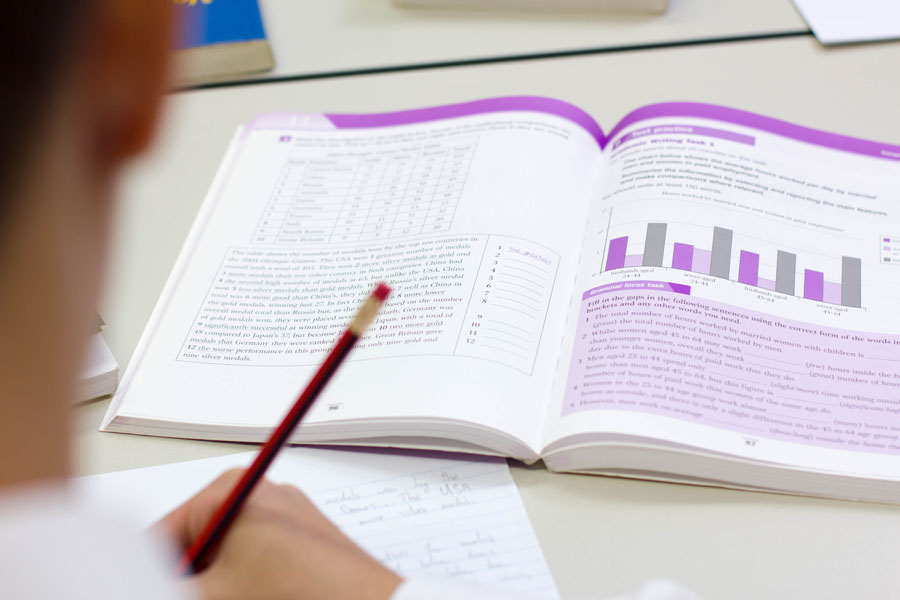WRITING
You have one hour for the IELTS Writing test. You need to produce two pieces of writing. First watch this video to get an overview of the test.
Task 1 is a short piece of writing (at least 150 words) using data or information given on the question paper. This information is in graphical form and could be any of the following: graphs (bar or line), pie charts, tables, maps or process diagrams. Two different sources may also be given. You should spend around 20 minutes on task 1.
Task 2 is an essay (at least 250 words) on a given topic. There is no choice of topic, but it generally involves discussing two points of view and giving your own opinion. You should spend around 40 minutes on task 2, which has more influence on your final band score than task 1. Both tasks are discussed in detail below, but here are a few general tips:
GENERAL Tips
Before the test
- Scientists and statisticians usually prefer Task 1; humanities students Task 2. It is very important to practise BOTH types of task until you are confident; however, during the test, you could start with the type you are most familiar with. That way, if you finish it with time to spare, you have more time to spend on your least favourite. Conversely, maybe it's better to do the most difficult first, on the grounds that you can produce the other more easily!
- When reading English, notice useful vocabulary and phrases and pay attention to the grammatical structure of sentences and the way in which sentences are linked in longer paragraphs. Use good reading text as a model for your own writing.

During the test
- Use full sentences and structure your writing into paragraphs. Don't use WhatsApp or text messaging style English.
- Spend a minute or two before you start writing to make a basic plan or outline, especially for Task 2. If you are short of time, this stops you getting flustered and keeps you on track as you write.
- NB: If your text is shorter than the number of words required (Task 1 = 150 words or more, Task 2 = 250 words or more), then you will be penalised. Practise writing by hand (maybe you haven't for a while) and count the average number of words you write per line. That way, you know how many lines you need to produce in the test.
This ELC IELTS writing website focuses on specific language items relevant to each task as well as strategies and advice for structuring your writing and tips and techniques for doing your best in the exam. Remember, you can get help about your writing at the Centre for Independent Language Learning (CILL), in Room A305 and Z213. You can take your practice writing to a CILL help desk teacher or book a WAP session for feedback. In addition, there are specific supplementary materials and practice tests on the CILL IELTS materials shelves.
OFFLINE CILL IELTS materials for IELTS Writing Test
- Cambridge University's Practice Exam Papers books 1, 2, 3 etc. These provide complete mock exams for self testing.
- Cambridge University's Specimen materials folders.
- Cambridge University's IELTS preparation course, "Insight into IELTS" by V. Jakeman & C. McDowell.
- Preparation course "Focus on IELTS" by S. O'Connell, Longman press.
- The British Council's "How to prepare for IELTS".
*CILL – The Centre for Independent Language Learning, A305 and Z213, The Hong Kong Polytechnic University http://elc.polyu.edu.hk/cill/


ONLINE IELTS materials for IELTS Writing Test
https://www.ielts.org/about-the-test/test-format-in-detail This site gives you information about the Writing test from Cambridge IELTS.
https://www.ielts.org/about-the-test/sample-test-questions Here you can find sample writing tasks from Cambridge IELTS.
http://takeielts.britishcouncil.org/prepare-test/free-practice-tests British Council have free practice writing tasks on this website.